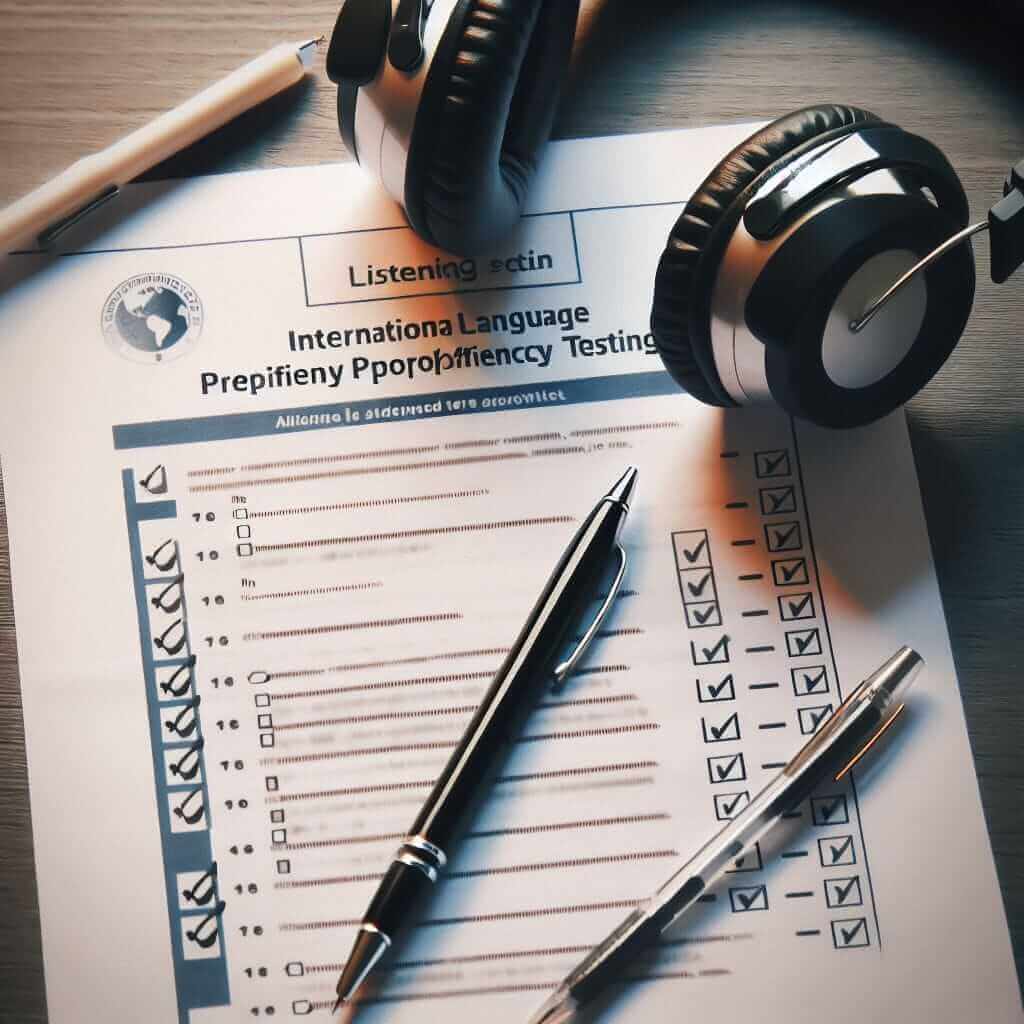As an IELTS instructor with over 20 years of experience, I’ve witnessed countless students strive for that coveted Band 7 in the listening section. Achieving this score signifies you can understand complex and detailed English, a valuable asset for academic studies or global communication. This comprehensive guide will delve into proven strategies and insights to help you reach your target.
Understanding the IELTS Listening Test and Band Descriptors
The IELTS Listening test evaluates your ability to comprehend spoken English in various contexts. A Band 7 requires you to demonstrate:
- Effective comprehension of complex and detailed language. This includes understanding a variety of accents, identifying opinions and attitudes, and following shifts in topic.
- Accurate identification of specific information and main ideas. This involves listening for key words, understanding paraphrasing, and differentiating between essential and supporting details.
- A consistent ability to follow the speaker’s line of reasoning. This entails recognizing discourse markers, understanding logical connections, and anticipating what the speaker might say next.
Effective Strategies for Reaching Band 7
While achieving a Band 7 might seem challenging, consistent effort and the right strategies can make it attainable. Here’s a breakdown:
1. Enhance Your Active Listening Skills
- Practice Focused Listening: Engage with a variety of English audio materials daily. Podcasts, documentaries, news broadcasts, and even audiobooks can significantly enhance your listening comprehension.
- Develop Note-Taking Techniques: Practice jotting down key words and phrases while listening. This skill is crucial for remembering important details, especially in sections with multiple speakers or complex instructions.
- Improve Your Concentration: Minimize distractions while practicing. Find a quiet environment where you can focus solely on the audio.
2. Master Vocabulary and Grammar
- Expand Your Vocabulary: A strong vocabulary is essential for understanding nuances in spoken language. Regularly learn new words and practice using them in context.
- Focus on Paraphrasing: The IELTS Listening test often uses different words to convey the same meaning as the recording. Familiarize yourself with common paraphrasing techniques.
- Strengthen Your Grammar: A good grasp of English grammar is essential for understanding sentence structure and identifying relationships between ideas.
3. Familiarize Yourself with the Test Format
- Understand the Question Types: The IELTS Listening test features various question types, such as multiple choice, sentence completion, and matching. Familiarize yourself with each type and practice effective answering strategies.
- Utilize Practice Tests Effectively: Regularly take full-length practice tests under timed conditions. This will help you get accustomed to the test format, manage your time effectively, and identify your strengths and weaknesses.

Analyzing Example Questions
Let’s examine a sample IELTS Listening question and apply the strategies discussed:
Recording: “… the museum offers guided tours every hour, starting at 10 am. These tours are free of charge, but donations are welcome. Visitors can explore the ancient artifacts exhibition, which showcases pottery, jewelry, and tools from the Roman era…”
Question: What can visitors see in the ancient artifacts exhibition?
Analysis:
- Key words: “ancient artifacts exhibition”, “showcases”
- Answer: The recording explicitly mentions “pottery, jewelry, and tools from the Roman era”.
This example demonstrates the importance of identifying key words and focusing on specific information.
Essential Tips for Success
- Read Instructions Carefully: Before each section begins, take a moment to thoroughly read and understand the instructions. This will prevent misinterpretations and ensure you answer the questions correctly.
- Predict Answers: Use the time given before each recording to preview the questions and anticipate possible answers. This will help you listen more effectively and identify key information.
- Manage Your Time Wisely: The IELTS Listening test requires you to work efficiently. Practice pacing yourself during practice tests so you can complete all sections within the time limit.
- Don’t Get Stuck: If you miss an answer, don’t dwell on it. Move on to the next question and try to catch any missed information when the recording is played again at the end of each section.
- Check Your Answers: If time permits, review your answers carefully. Look for any spelling errors or grammatical mistakes.
Conclusion
Achieving a Band 7 in IELTS Listening demands consistent effort and a focused approach. By implementing these strategies, practicing regularly, and staying motivated, you can enhance your listening skills and reach your desired score. Remember, every step you take toward improving your English brings you closer to your goals. Good luck!